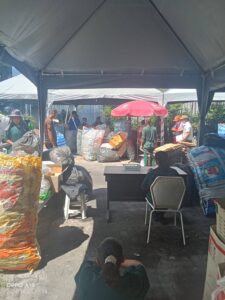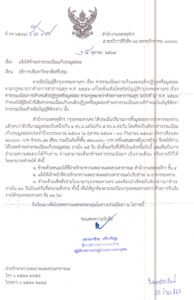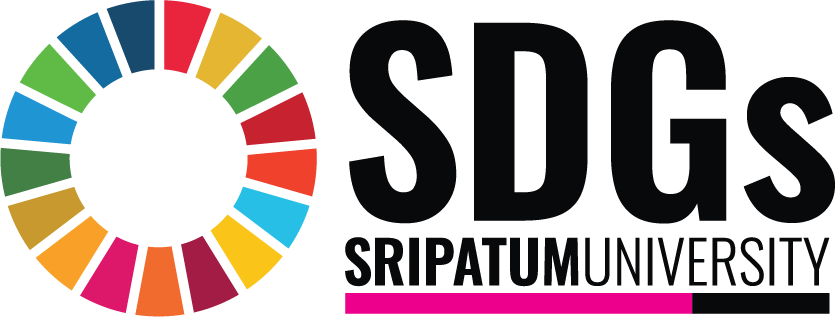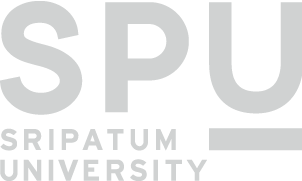

SPU Scales Up Sustainable Waste Tracking to Cut Environmental Impact
With daily monitoring, precise data collection, and institutional leadership, Sripatum University advances SDG-aligned campus waste management through real-time tracking and accountability.
Sripatum University (SPU) has taken another step toward sustainability by implementing an operational waste tracking system designed to reduce environmental impact and support national and global SDG targets. As part of its comprehensive waste management strategy, the university records daily and monthly waste volumes across multiple categories: general waste, recyclables, and food waste — aligning directly with SDG 12: Responsible Consumption and Production, especially 12.3.1, which relates to waste tracking.
SPU tracks approximately 3 tons of general waste per day (90 tons per month), 800 liters of food waste per day, and recycles around 8 tons of materials monthly. These figures are not just statistics; they inform continuous improvements, operational adjustments, and performance assessments for more efficient waste sorting and processing. This approach supports SDG 11: Sustainable Cities and Communities, contributing to orderly, safe, and eco-conscious environments.
Spearheaded by the Office of Buildings and Facilities and supported by the Chatuchak District’s waste collection services, the system emphasizes both hygiene and transparency. The Waste Bank program plays a vital role in turning waste into value and enhancing community participation — supporting SDG 3: Good Health and Well-being by preventing waste buildup and contamination.
This initiative also aligns with SDG 16: Peace, Justice and Strong Institutions by strengthening accountability mechanisms, budgeting responsibly for environmental safety, and investing in upgraded waste infrastructure.
Through digital tracking, structured reporting, and student-staff engagement, Sripatum University proves that even waste can be a platform for sustainability leadership. Every recorded kilogram becomes part of a smarter, cleaner campus and a long-term environmental commitment.
ข่าวในภาษาไทย | News in Thai
ม.ศรีปทุม ยกระดับการติดตามข้อมูลขยะ สู่การจัดการอย่างยั่งยืน
มหาวิทยาลัยศรีปทุมติดตามข้อมูลขยะรายวัน–รายเดือน พร้อมจัดสรรงบประมาณและมีระบบจัดเก็บข้อมูลชัดเจน รองรับการดำเนินงานตามเป้าหมายการพัฒนาที่ยั่งยืน
มหาวิทยาลัยศรีปทุม (SPU) ได้พัฒนาระบบ “การติดตามปริมาณขยะ” เพื่อส่งเสริมการจัดการขยะที่มีประสิทธิภาพ ลดผลกระทบต่อสิ่งแวดล้อม และตอบสนองต่อเป้าหมาย SDGs ระดับประเทศและสากล โดยมีการจัดเก็บข้อมูลปริมาณขยะในแต่ละวันและแต่ละเดือน ทั้งขยะทั่วไป ขยะอาหาร และขยะรีไซเคิล โดยสอดคล้องกับ SDG 12: การบริโภคและการผลิตที่ยั่งยืน โดยเฉพาะเป้าหมายย่อย 12.3.1 ซึ่งเน้นการติดตามข้อมูลขยะ
ปริมาณขยะทั่วไปเฉลี่ยอยู่ที่ 3 ตันต่อวัน (90 ตันต่อเดือน) ขยะอาหาร 800 ลิตรต่อวัน และขยะรีไซเคิล 8 ตันต่อเดือน ซึ่งข้อมูลเหล่านี้ถูกนำมาใช้ในการวิเคราะห์ ประเมินผล และปรับปรุงกระบวนการจัดการขยะให้มีประสิทธิภาพมากยิ่งขึ้น โดยช่วยลดขยะฝังกลบและเพิ่มการใช้ทรัพยากรอย่างมีคุณค่า ซึ่งสอดคล้องกับ SDG 11: เมืองและชุมชนที่ยั่งยืน
สำนักงานอาคารสถานที่เป็นหน่วยงานหลักในการดำเนินการ โดยร่วมมือกับสำนักงานเขตจตุจักรในการจัดเก็บขยะทุกวัน พร้อมทั้งมีโครงการธนาคารขยะที่ช่วยเปลี่ยนขยะให้เกิดมูลค่า เสริมสร้างสุขอนามัยและความมีส่วนร่วมของนักศึกษาและบุคลากร ซึ่งช่วยลดความเสี่ยงจากขยะตกค้าง และสนับสนุน SDG 3: สุขภาพและความเป็นอยู่ที่ดี
นอกจากนี้ยังมีการจัดสรรงบประมาณเพื่อพัฒนาเทคโนโลยีการจัดการขยะ และลงทุนในระบบคัดแยกที่ปลอดภัยและถูกสุขลักษณะ ซึ่งสะท้อนถึงการบริหารจัดการที่โปร่งใสและมีประสิทธิภาพตาม SDG 16: สันติภาพ ยุติธรรม และสถาบันที่เข้มแข็ง
SPU พิสูจน์แล้วว่า การจัดการขยะไม่ใช่เพียงการทิ้งอย่างเป็นระเบียบ แต่คือการวางระบบ วิเคราะห์ และมีส่วนร่วมเพื่อสร้างมหาวิทยาลัยสีเขียวอย่างแท้จริง


